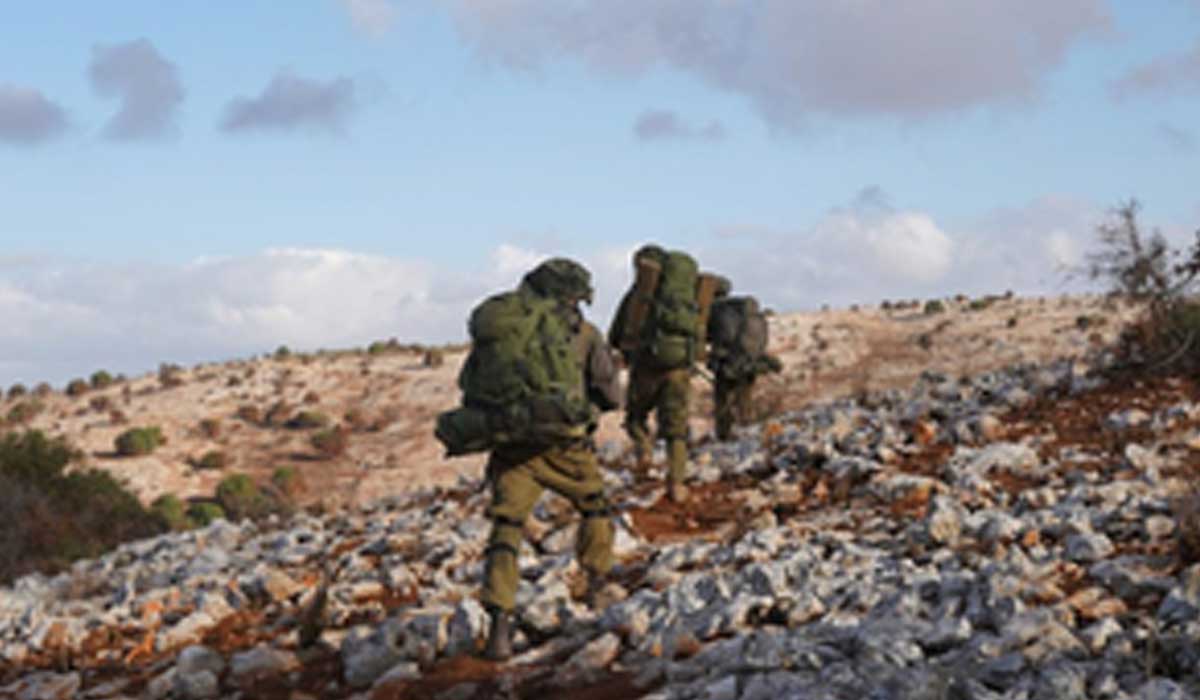Jerusalem/Beirut – In a significant escalation of the ongoing cross-border conflict between Israel and Hezbollah, the Israel Defense Forces (IDF) announced on Sunday that its forces had killed two senior Hezbollah operatives in southern Lebanon. The operatives, identified as Farouk Amin Alasi and Yousef Ahmad Nun, were reportedly responsible for coordinating recent rocket attacks on Israeli territory. This targeted strike has intensified the already volatile situation along the Israel-Lebanon border.
Key Highlights of the Incident
- Operatives Identified: Farouk Amin Alasi, Hezbollah’s Khiam area commander, and Yousef Ahmad Nun, a Radwan Forces company commander, were killed.
- IDF Statement: Israel claims the operatives played pivotal roles in rocket and missile attacks targeting Israeli civilians and IDF forces.
- Location of Attack: The strike occurred in Khiam, a Hezbollah stronghold in southern Lebanon.
- Escalation of Conflict: This incident adds to the ongoing tension, which began with cross-border fighting last October.
Details of the Strike
According to the IDF, the operatives were eliminated through precision airstrikes in Khiam, a Hezbollah stronghold located in southeastern Lebanon. Alasi and Nun were deemed crucial figures within Hezbollah’s military structure in the area, allegedly involved in attacks targeting communities and IDF personnel stationed near Israel’s northern border.
Who Were the Hezbollah Operatives Killed?
- Farouk Amin Alasi: As Hezbollah’s commander in Khiam, Alasi was said to be responsible for multiple anti-tank missile and rocket attacks directed at Israeli towns, particularly Metula in the Galilee Panhandle.
- Yousef Ahmad Nun: Operating as a Radwan Forces company commander, Nun reportedly coordinated rocket and anti-tank missile assaults against Israeli civilian and military targets.
Lebanese sources told Xinhua News Agency that an Israeli warplane launched four air-to-ground missiles at a building in Khiam, which resulted in the deaths of the two Hezbollah operatives and the complete destruction of the two-story structure.
Growing Hostilities Along the Israel-Lebanon Border
Since last month, the Israel-Hezbollah border conflict has been escalating, with daily rocket exchanges, airstrikes, and ground operations on both sides. Here is an overview of recent developments:
- September 23 Onward: IDF began an intensive air campaign targeting Hezbollah positions in Lebanon, marking a dangerous escalation in regional hostilities.
- Earlier This Month: Israel launched a ground operation across its northern border into Lebanon, aiming to dismantle Hezbollah’s cross-border infrastructure.
- Current Situation: Cross-border clashes continued over the weekend, with Hezbollah retaliating against Israeli strikes by firing rockets at Israeli military gatherings and vehicles in locations including Wata al-Khiam, the Tal al-Nahas area, and near Kfar Kila.
Hezbollah’s Response and Ongoing Clashes
In response to Israel’s recent airstrikes, Hezbollah launched multiple attacks on Israeli military positions on Sunday. In a series of statements, Hezbollah claimed responsibility for striking IDF locations in several areas near the border, including:
- Wata al-Khiam
- Khallet al-Assafir in Khiam
- Tal al-Nahas near Kfar Kila
- The town of Sarda
- al-Umrah area
More than 35 rockets were reportedly launched from Lebanon into northern Israel, although no injuries were recorded on the Israeli side.
Background: Israel-Hezbollah Tensions Over the Years
Hezbollah and Israel have a long history of conflict, often erupting into open warfare. Notably:
- 2006 Lebanon War: The conflict reached a peak with the 2006 Lebanon War, which lasted 34 days and resulted in significant casualties and displacement.
- Border Clashes Since Then: Periodic skirmishes and cross-border incidents have been a feature along the Israel-Lebanon border.
- Ongoing Hostilities: The current conflict began in October, marked by an escalation in rocket attacks and IDF airstrikes.
Analysis: The Implications of the Recent Israeli Airstrike
The targeted killing of high-ranking Hezbollah operatives signals Israel’s determination to mitigate threats along its northern border. However, the incident raises concerns over an escalation into a broader conflict.
Potential Consequences
- Increased Regional Tensions: Israel’s operation in southern Lebanon may heighten tensions not only with Hezbollah but also with Lebanese security forces and civilians in the region.
- Risk of Escalation: The continued exchanges and targeted strikes may lead to a larger-scale conflict, reminiscent of the 2006 Lebanon War.
- Implications for Civilians: As both sides increase military operations, civilians in border regions face risks of displacement, injury, and restricted access to essential services.
The Role of the IDF’s Ground Campaign in Khiam
The IDF has reportedly pushed deeper into Lebanese territory with a ground operation aimed at disrupting Hezbollah’s infrastructure in the Khiam region. According to Lebanese sources, the IDF’s incursion into Khiam marks one of the most significant advances in Israel’s current military operations.
How is the International Community Responding?
The United Nations and multiple countries have urged both Israel and Hezbollah to exercise restraint. Efforts to mediate a ceasefire continue, with several international organizations emphasizing the importance of protecting civilian lives and infrastructure in the region.
Final Thoughts: What Lies Ahead?
The death of two key Hezbollah operatives may weaken Hezbollah’s ability to conduct missile strikes in the immediate term. However, the organization’s deep-rooted presence in Lebanon and its alliance with Iran may prompt further retaliatory actions. With both sides entrenching their positions, the likelihood of de-escalation appears slim, and the potential for a broader regional conflict remains a serious concern.
Conclusion: The killing of Hezbollah operatives Farouk Amin Alasi and Yousef Ahmad Nun marks a pivotal moment in the Israel-Hezbollah conflict. As Israel continues its ground and air operations, the international community watches closely, urging both sides to avoid actions that could lead to further bloodshed. Whether this incident will escalate into a wider conflict or pave the way for future diplomatic efforts remains to be seen.
